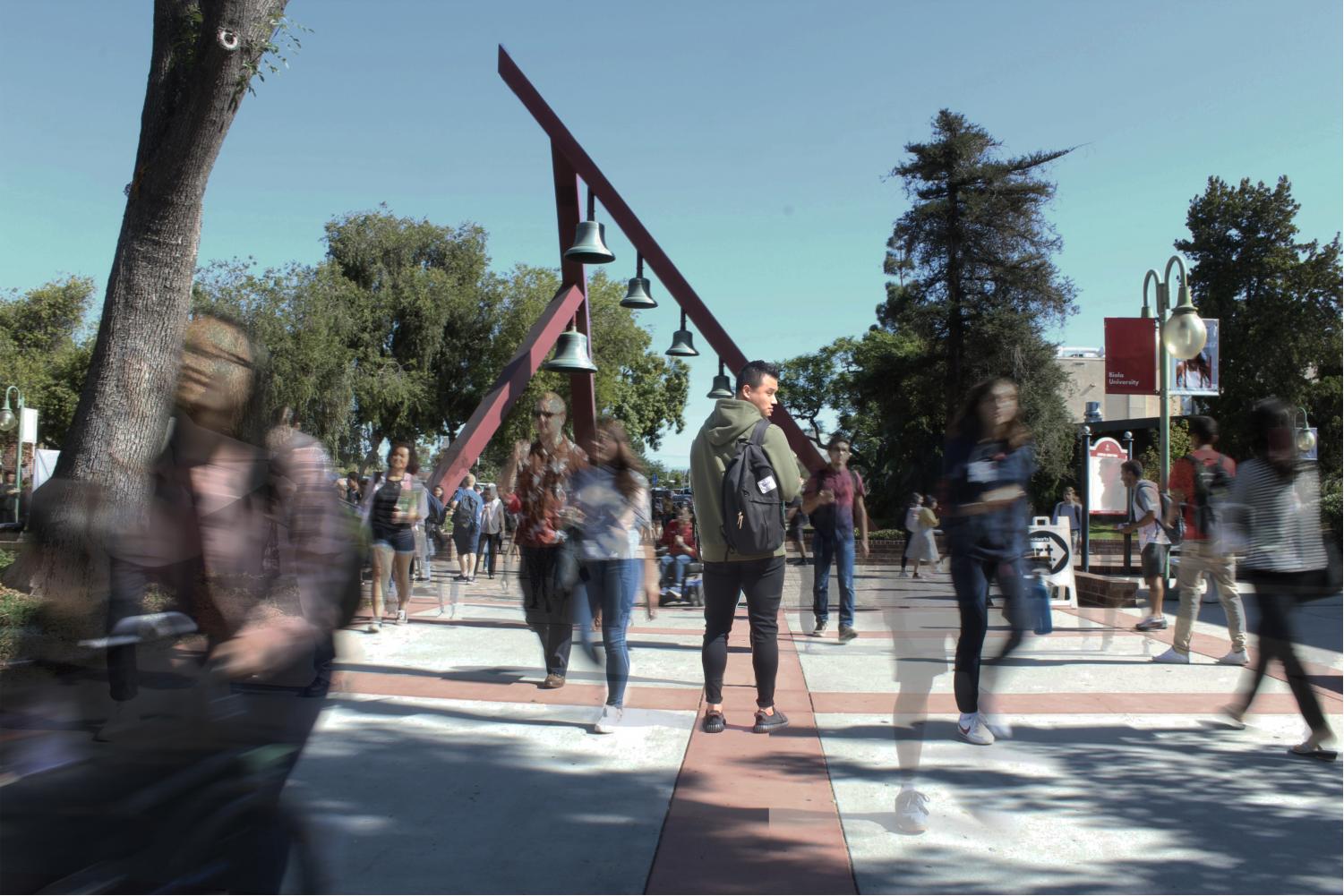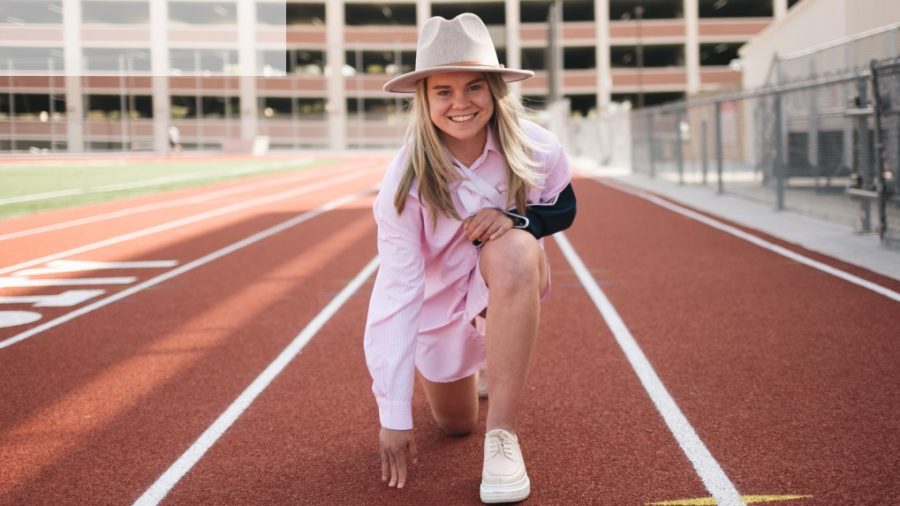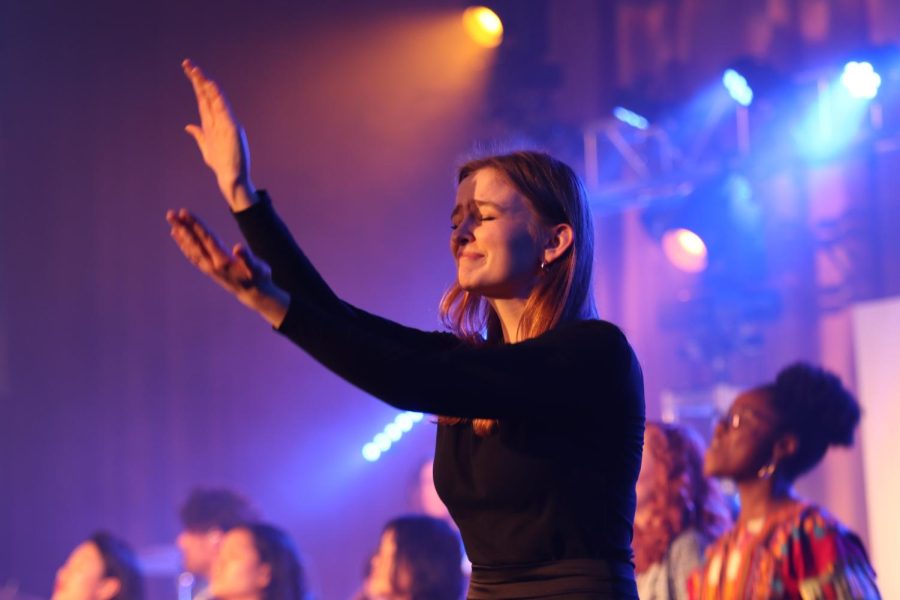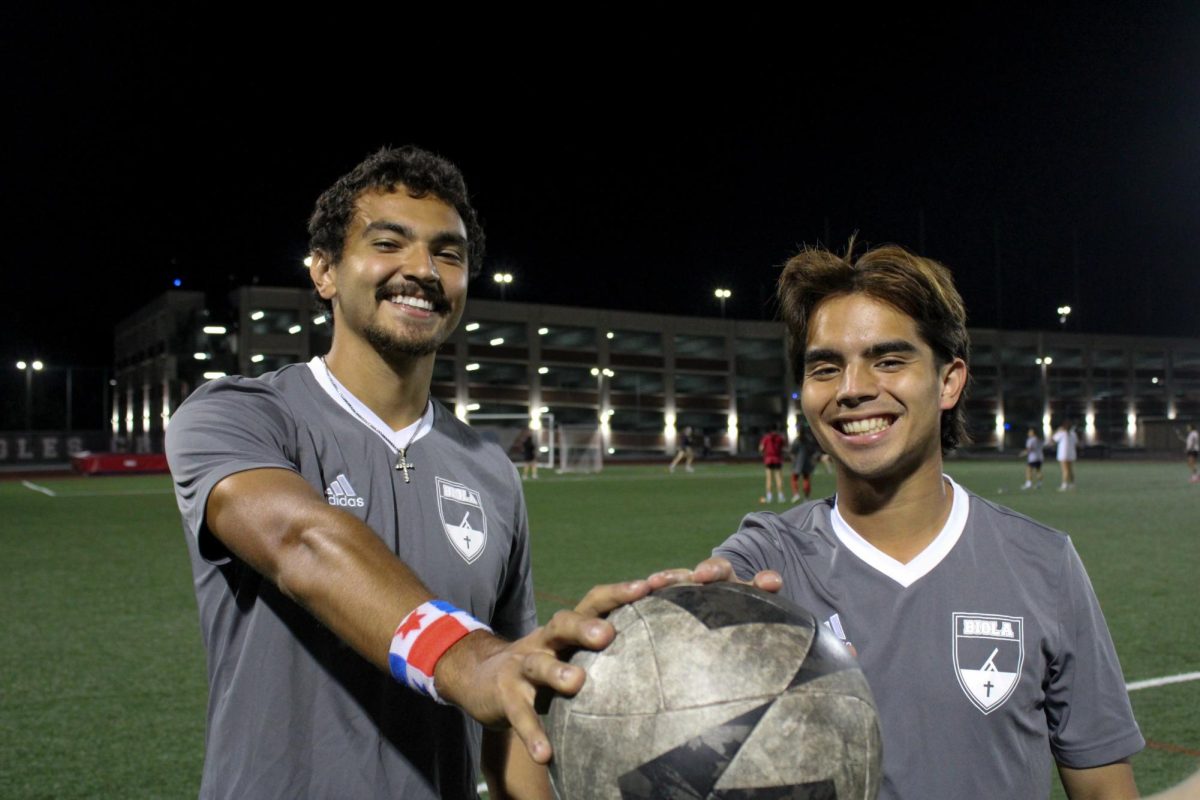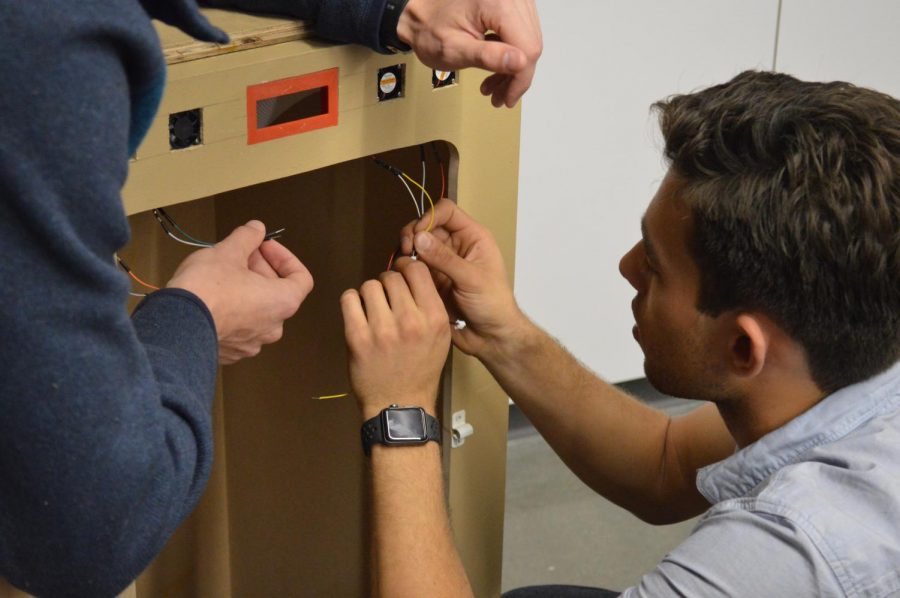(This story was originally published in print on Oct. 3, 2019).
Hannah Harkness fell in love with Biola as a sophomore in high school. Now a senior English major, she says she felt like God was leading her to come here. After the first day of orientation, she called her mom: “Mom, I can’t stay here, I have to go home. I can’t do this, I can’t be a part of this, this is too much for me.”
Before coming to Biola, Harkness was diagnosed with post-traumatic stress disorder and was dealing with multiple health issues. Her mother was also going through sickness and Harkness’s enrollment at Biola had been delayed because her family lost their house. Harkness started having panic attacks in her freshman year.
“Moving to Biola after growing up in certain circumstances, being away from it allowed me to process it a lot,” she said. “And so through processing it, I got overwhelmed… And that on top of schoolwork, trying to figure out friends, trying to figure out living in a dorm, all of that just came together and was really overwhelming.”
RISING ANXIETY AND DEPRESSION
Last spring, the American College Health Association’s National College Health Assessment reported that 65.7% of college students felt overwhelming anxiety, 45.1% were depressed and 70.8% felt very sad. Biola students are not immune to this. Since 2011, Pastoral Care reported a 103% increase of high risk and emotional care cases.
Harkness says the numbers don’t surprise her.
“I hear a lot how students are struggling with anxiety,” she said. “And they’re so busy and have so many obligations and they’re involved in so many programs and… They feel like they have to keep going with life, rather than taking time to pause and take care of themselves.”
Pastoral Care’s findings support that sentiment. According to Dean of Student Wellness Lisa Igram, the top concern from students in Pastoral Care appointments is overwhelmedness. Students feel compelled to commit themselves to internships, volunteering and student leadership—on top of a full-time school schedule. Student Development’s research identified a performance-based mentality prevalent among Biola students.
“There is something about Biola culture that says the more I do, the more value I have,” responded one student to their survey.
Senior journalism major Jasmyne Bell says says she has seen her mental health deteriorate while at Biola.
“I didn’t know what was going to hit me,” she said. “I was a more ignorant version of myself and therefore I felt healthy. I have grown up with friends with severe depression and anxiety, so it’s not like I was a stranger to it. But I think I felt invincible.”
RESILIENCE AND RELATIONSHIPS
Igram says Biola students score lower than other college students in measures of resilience. So students have difficulty recovering from things like loneliness, depression or conflict. This is especially true for issues of relationship—Biola students are highly relational, Igram says.
“[Biola students] care about finding a good community,” she said. “So when they perceive it to be difficult to make a good friend, or when they’re in a friendship or relationship and stress happens in that relationship, whether it’s on campus or in family, they feel it more deeply.”
COMMUNITY EXPECTATIONS
In 2016, Student Development surveyed the freshman class, asking if they had experienced anxiety within the last year. Ninety-two percent said they had. That number was significantly higher than the national average of 84%. The survey asked a series of related questions: did you feel depressed in the last year? Were you frequently overwhelmed by all you had to do? In every category, Biola students exceeded the national average.
Harkness was one of those freshmen in 2016. She said she felt hesitant to share the pain she carried with her, scared of burdening other people with problems that seemed too terrifying to even talk about.
“I didn’t trust it [community] at all,” she said. “I wanted to be a part of community for other people, but I never trusted that community could be safe for me.”
Community is one of the things that helps students bounce back from times of stress. But at Biola, the connection between need and support may be lacking.
“I feel like students on our campus feel very isolated and alone and hindered from reaching out in some ways,” Harkness said. “I think that contributes to why we have higher statistics for anxiety and at-risk situations than the national average.”
FIVE-YEAR PLAN
Student Development has created a five-year plan aimed at defining and promoting student wellness. The plan coordinates departments from across the university to share information and strategies that surround the issue of well-being. That means making changes to the Biola culture as a whole: academics, residence life, student-to-student discussions and more.
“It’s not just individuals or one area, it’s the whole picture that needs to be addressed,” Igram said.
Assistant professor of English Aurora Matzke says her department is revising its curriculum to eliminate what Matzke calls double-jeopardy policies. These provisions stack punishments—for example, when classes punish late work as well as enforcing strict attendance policies. Instead, the department is encouraging professors to dialogue with students about their needs, finding compromise wherever possible between what the class requires and what the student can provide.
“Those things that encourage people to be present with one another and to stay with one another during times of difficulty,” Matzke said.
The public relations department is also undergoing changes that introduce wellness conversations as a regular exercise instead of a last resort.
“I think it’s putting it on everyone’s radar that we’re highly interested in making sure that we’re not burning out by behaviors that they cultivate,” said Carolyn Kim, director of the public relations program.
ENTERING DISCUSSION
And that’s the key, both Harkness and Bell say. Starting a discussion about mental health as it affects friends, family and self.
“We don’t talk about things,” Bell said. “I mean, that’s cliché in itself—people always say, ‘Oh, we don’t talk about this.’ But then we really don’t talk about it.”
Harkness made it through orientation week. She started seeing a therapist at the Biola Counseling Center during her sophomore year and talked to Igram at Pastoral Care, where she found the support she needed to feel comfortable sharing her burdens.
“Because being vulnerable at first seems terrifying, I know,” Harkness said. “Because I did not want to do it at all. But vulnerability also allows us to be human in a way that we would not be able to be without being vulnerable.”



